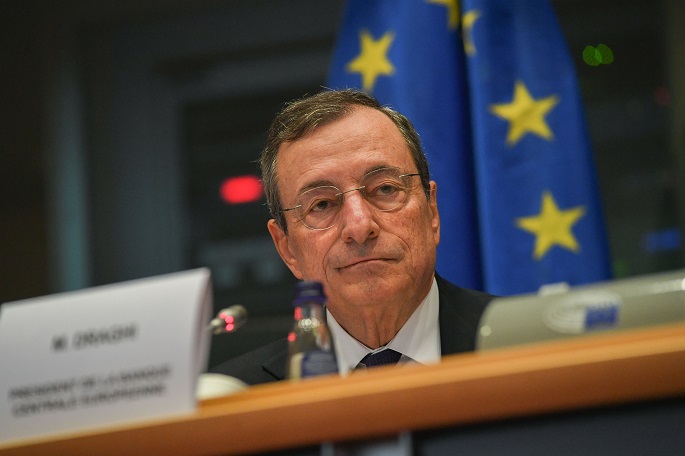Stablecoins so far not suitable substitutes for money: ECB president
Published : 28 Sep 2019, 00:08
Stablecoins and crypto-assets are not designed in ways that make them suitable substitutes for money based on analysis so far, Mario Draghi, the president of the European Central Bank (ECB) said in a letter published by the bank on Friday.
In his letter addressed to Eva Kaili, member of the European Parliament, Draghi said the the European System of Central Banks (ESCB) has been closely monitoring innovation in the financial sector and is analyzing crypto-assets and stablecoins with regard to their implications in monetary policy, payments and market infrastructures, and financial stability.
"Thus far, stablecoins and crypto-assets have had limited implications in these areas and are not designed in ways that make them suitable substitutes for money," Draghi said.
But Draghi added the assessment may be subject to change given rapid technological development and business model evolution, citing stablecoin arrangements such as Libra that could have the potential for widespread adoption in retail and wholesale payments.
Draghi also said that the ESCB is analyzing the opportunities and challenges associated with making a digital form of the euro, but noted that the key issue for a central bank digital currency is not the technology but rather its utility in terms of costs and benefits to the public.
"Stablecoins" refer to digital currency initiatives backed by large technology or financial firms and built on blockchain technology. Facebook announced in June that it plans to launch a "low-volatility cryptocurrency" called Libra next year to tap into digital payments.
Many central banks have taken a cautious attitude toward Libra and other cryptocurrencies. Draghi said that G7 finance ministers and central bank governors agreed in a meeting in July that regulatory and systemic concerns, as well as policy considerations, should be addressed before any such initiatives are implemented.
Benoit Coeure, member of the executive board of the ECB, said in Berlin on Wednesday that stablecoins could give rise to risks related to anti-money laundering and countering the financing of terrorism, consumer and data protection, cyber resilience, fair competition and tax compliance.
Nevertheless, calling stablecoins "a natural result of rapid technological progress, globalization and shifting consumer preferences," Coeure said Libra has been "a wakeup call" for central banks and policymakers and highlights the challenges they need to respond to.


